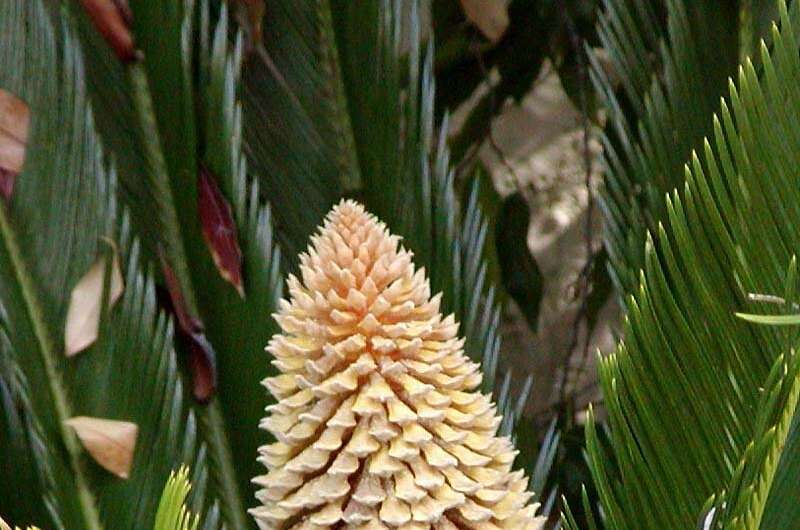Leaves and male cone of Cycas revoluta. Credit: Stan Shebs/CC BY-SA 3.0
Several representatives of the Ventnor Botanic Garden (VBG) have spoken with the press recently about the unusual appearance of male and female cycad (Cycas revoluta) in an outdoor setting in the U.K. The primitive palm-like tree is found in many locations around the world, but tends only to produce male and female cones in warm climates. Representatives with the VBG also noted that a male of the species had been produced several years ago, but this was the first time both male and female cones were produced.
The Isle of Wight is located just off the southern coast of England in the English Channel. And the VBG is located on the southern coast of the island. Part of the coastal region has cliffs, and it is in their undersides that the cycads grow. For the cycads to reproduce, seeds released by the male cone must make their way to plants that produce female cones. In the U.K., this usually happens manually in indoor locations—the climate has been too cold for cones to appear. The cycads that live on the Isle of Wight are believed to be remnants of plants that lived on the island millions of years ago, when the island was warmer and part of Pangea. Since that time, cycads have become far less common in the U.K. and Europe. Today, they are most common in tropical parts of the world.
John Curtis, director of the VBG told the press that the emergence of both male and female cones in the same year suggests that the plant is responding to climate change. Not only has the planet been getting warmer in general, but the U.K. has experienced consecutive hot summers and relatively mild winters. He notes that for the plants to begin producing both male and female cones, conditions have to be right for a long period of time, not just one year or season. He described the appearance of both male and female cones in the same year as "extraordinary." He said that he expects other types of plants to begin sprouting in the VBG as the island, along with the rest of the planet, continues to warm.
© 2019 Science X Network
























